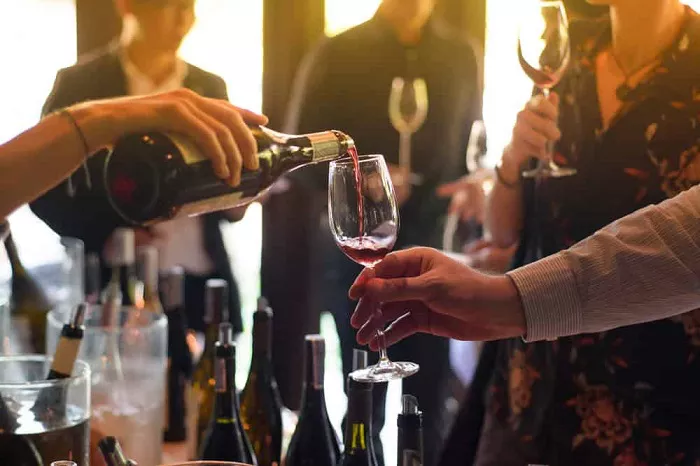Five years ago, at a WSTA conference, Lord Holmes of Richmond highlighted the transformative potential of technology for the wine trade. He envisioned a future where blockchain and non-fungible tokens (NFTs) could reduce trade friction, provide consumer insights, and streamline supply chains. However, has this vision materialized, and if not, what are the barriers?
The Decline of the NFT Market
One significant challenge to the adoption of blockchain technology in the wine industry is the recent downturn of the NFT marketplace. In 2021, the industry was valued at approximately £31 billion, but current estimates place its value between £7 and £10 billion, with predictions indicating that only about 5% of NFTs have maintained their worth. Experts attribute this decline to a speculative bubble characterized by limited consumer interest in digital assets, particularly models like the Bored Ape Yacht Club. In contrast, the wine market deals with tangible products that can be consumed, suggesting that there may still be significant opportunities for blockchain applications within this context.
Innovative Platforms for Wine Trading
These challenges were the focus of a recent podcast featuring Scott Melker, host of “The Wolf of All Streets,” and David Garrett, an Argentinian winemaker who has launched dVIN, a blockchain-based platform for fine wine trade. Garrett emphasized that wine is one of the most heavily regulated products globally, yet some merchants, such as Berry Brothers & Rudd, are already facilitating direct transactions between winemakers and consumers. By utilizing blockchain technology, dVIN tokenizes wine bottles and tracks their movement, potentially revolutionizing a trade worth nearly £100 billion.
Addressing Practical Issues in the Trade
Garrett noted a significant issue in the wine industry: approximately one in ten fine wine bottles is spoiled. Blockchain technology could provide a solution by offering real-time data on wine quality and movement, potentially addressing a £10 billion problem for the entire trade. By creating a universal protocol to register wine on the blockchain, the industry could achieve “unified liquidity” for this previously fragmented luxury asset class. Currently, around £600 billion worth of the global wine trade consists of luxury investment-grade, collectible rare wines. Moreover, widespread blockchain adoption could eradicate counterfeit wines by proving that a bottle originated directly from the producer.
Slow Adoption Among Producers
Despite these benefits, the uptake of blockchain and NFTs in the wine industry has been slow. While other luxury goods have embraced digital assets, the wine sector lags behind. Notable exceptions include Chilean producer VIK, which offered limited NFT releases linked to their wines, and Bordeaux estate Château Malartic-Lagravière, whose NFTs were sold out within an hour. Additionally, Web3 platforms are emerging, providing Bordeaux en primeur bottles as NFTs, while BlockBar, founded in 2021, promotes NFTs as a more straightforward business solution.
Enhancing Accountability in Ownership
Sam Falic, co-founder of BlockBar, emphasized the simplicity and transparency of NFT ownership: “Anyone anywhere can go online and see who owns what, providing greater accountability for asset holders.” Despite these clear advantages, wholesale adoption of blockchain technology remains elusive, with many producers expressing uncertainty about its applications.
Changing Perspectives in a Traditional Industry
Garrett argues that changing the mindset of a traditional trade hesitant about digital transformation requires demonstrating the technology’s benefits and providing incentives for adoption. His solution includes introducing a token, dubbed “vincoin,” which rewards customers when they open a bottle of wine. These rewards can be redeemed for further purchases or unique wine experiences, potentially attracting a new audience of digital asset enthusiasts while enhancing producers’ profitability.
The Importance of Data in the Wine Industry
Another significant issue for the wine trade is the lack of data about consumer behavior. Garrett pointed out that many producers lack insight into who is purchasing their wines. By leveraging digital technology, producers can gain critical information about their customers, market trends, and consumer demographics. This data-driven approach could enable winemakers to identify growth opportunities and adapt their marketing strategies effectively.
Conclusion
As the wine industry grapples with the challenges of adopting blockchain technology and NFTs, the potential benefits remain significant. With the right strategies and incentives, the sector could realize Lord Holmes’s vision of a technologically advanced wine trade that enhances transparency, reduces spoilage, and ultimately improves profitability.
You Might Be Interested In:


